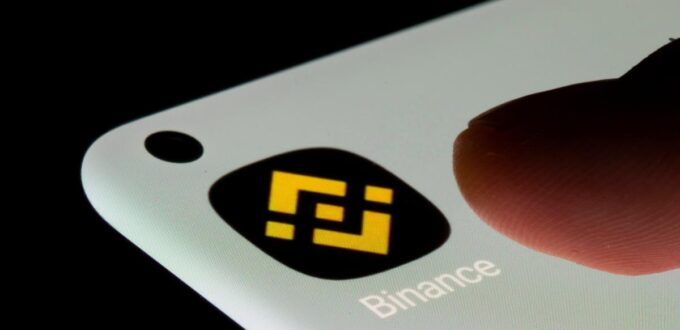Binance, the world’s largest cryptocurrency exchange by volume, has announced a deal with the Africa Cup of Nations to become the official and exclusive cryptocurrency and blockchain sponsor for this year’s tournament, which is ongoing in Cameroon.
Founded in 2017 and registered in the Cayman Islands, Binance is the world’s largest cryptocurrency exchange by trading volume, processing $76 billion worth of crypto per day.
Its Afcon sponsorship is another move in the company’s quest to strengthen its presence in Africa. In 2018, the company launched a crypto trading platform in Uganda.
“With a population of 1.2 billion Africans and the prevalence of blockchain technology & its use cases, we believe the African continent could lead the future of the blockchain industry,” said Yi He, Binance co-founder and chief marketing officer, in an announcement of the deal.
Afcon sponsorship is a unique opportunity for Binance
The Africa Cup of Nations is the biggest sports tournament in the continent. It is being broadcasted in more than 160 countries around the world, with an audience of more than 300 million. Binance is looking to turn eyeballs on the most popular sport in Africa to drive crypto and blockchain adoption and enable greater access to financial services for the unbanked in the continent.
As part of the deal, Binance will also be the official partner of the Assist of the Day, Binance Assist of the Week, and Binance Assist of the Tournament segments which the Confederation of African Football, the tournament’s organizer, will promote across its social media channels and across all six venues in five cities in the west African country.
Africa is a fast-growing region for crypto adoption
Africa is the third fastest-growing (pdf) region for crypto adoption, growing by more than 1200% by value received from July 2020 to June 2021, according to Chainalysis, a platform that provides blockchain data.
One trend that’s driving crypto usage in Africa is the growth of peer-to-peer (P2P) cryptocurrency exchanges, where users trade directly with each other, Chainalysis says (pdf). Africa leads the world in the use of P2P, accounting for 1.2% of all African transaction volume and 2.6% of all volume for Bitcoin.
Africans use this type of trading to protect remittances and cross-border businesses from high transfer fees and the risks of weakening currencies. Besides running an exchange platform, Binance has a P2P platform known as Binance B2P.
Binance may also be looking to tap into Africa’s youthful and Internet-savvy demographic. Sports could be a lever for crypto adoption as many sports fans are already using their smartphones for sports betting. A 2017 GeoPoll survey found that up to 54% of sub-Saharan African youth between 17 and 35 years have engaged in sports betting. This demographic might be an easier target market for crypto adoption.
Binance is positioning itself for Africa
Africa is “a hot market” for crypto, blockchain, Web3 startups and Binance is positioning itself for this region, says Michael Kimani, a Nairobi-based blockchain analyst. He adds that Binance is special because it has both an exchange and a P2P marketplace.
“They’re in a really good position to be one of the biggest crypto companies across Africa,” says Kimani, who is also co-founder and head of growth for Africa at Fonbnk, a fintech company.
In Africa, Binance is competing with platforms such as Yellow Card, Luno, Buycoins Africa, Paxful, LocalCryptos, LocalBitcoins, and Remitano.
Although crypto is gaining popularity in Africa, most countries in the continent still haven’t regulated it, with some including Nigeria even banning its use. The allure of the currencies and lack of regulation have created a lucrative ground for scams, with Africans losing millions of dollars in swindles.
Sign up to the Quartz Africa Weekly Brief here for news and analysis on African business, tech, and innovation in your inbox.

No Comments Yet